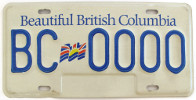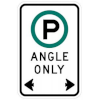Q&A - Driver Suspensions for Causing a Collision
 Q: I would like some information regarding laws in Vancouver or other provinces in Canada that require a temporary suspension of one's license if they are involved in a motor vehicle accident where there is a fatality or serious injury.
Q: I would like some information regarding laws in Vancouver or other provinces in Canada that require a temporary suspension of one's license if they are involved in a motor vehicle accident where there is a fatality or serious injury.

 Colt Chamberlain was convicted in traffic court for driving at a speed of 145 km/h in a posted 90 km/h zone on highway 19 in Delta. He appealed the conviction saying that the Crown had not proven who had put up the speed limit sign. Only the minister responsible for the administration of the Transportation Act has the authority to do this.
Colt Chamberlain was convicted in traffic court for driving at a speed of 145 km/h in a posted 90 km/h zone on highway 19 in Delta. He appealed the conviction saying that the Crown had not proven who had put up the speed limit sign. Only the minister responsible for the administration of the Transportation Act has the authority to do this.
 The licence plate has one purpose: to quickly and easily identify the vehicle that it is attached to. This is important enough that
The licence plate has one purpose: to quickly and easily identify the vehicle that it is attached to. This is important enough that  Even five hours after smoking marihuana, young drivers are at an increased risk of a crash according to the results of a clinical trial conducted at the Research Institute of the McGill University Health Centre.
Even five hours after smoking marihuana, young drivers are at an increased risk of a crash according to the results of a clinical trial conducted at the Research Institute of the McGill University Health Centre. The Australian National Transport Commission is planning to update rules regarding the use of in vehicle technology and has asked for public input. This could be of equal importance here in British Columbia and the document outlines what we might consider.
The Australian National Transport Commission is planning to update rules regarding the use of in vehicle technology and has asked for public input. This could be of equal importance here in British Columbia and the document outlines what we might consider. 
 The Parent Advisory Council for
The Parent Advisory Council for  Matthew Catling received two traffic tickets, one in Richmond for speeding in a municipality and one in Vancouver for using an electronic device. Mr. Catling filed separate Constitutional Question Act notices on both the Richmond and Robson Square prosecutions on November 2, 2017, and November 24, 2017, respectively. He asserted that s. 63.1 of the Offence Act violates Sections 7 and 11(d) of the Charter.
Matthew Catling received two traffic tickets, one in Richmond for speeding in a municipality and one in Vancouver for using an electronic device. Mr. Catling filed separate Constitutional Question Act notices on both the Richmond and Robson Square prosecutions on November 2, 2017, and November 24, 2017, respectively. He asserted that s. 63.1 of the Offence Act violates Sections 7 and 11(d) of the Charter.  Is it legal to pull into a head-in angled parking spot on the opposite side of the street (crossing a solid yellow line)?
Is it legal to pull into a head-in angled parking spot on the opposite side of the street (crossing a solid yellow line)?